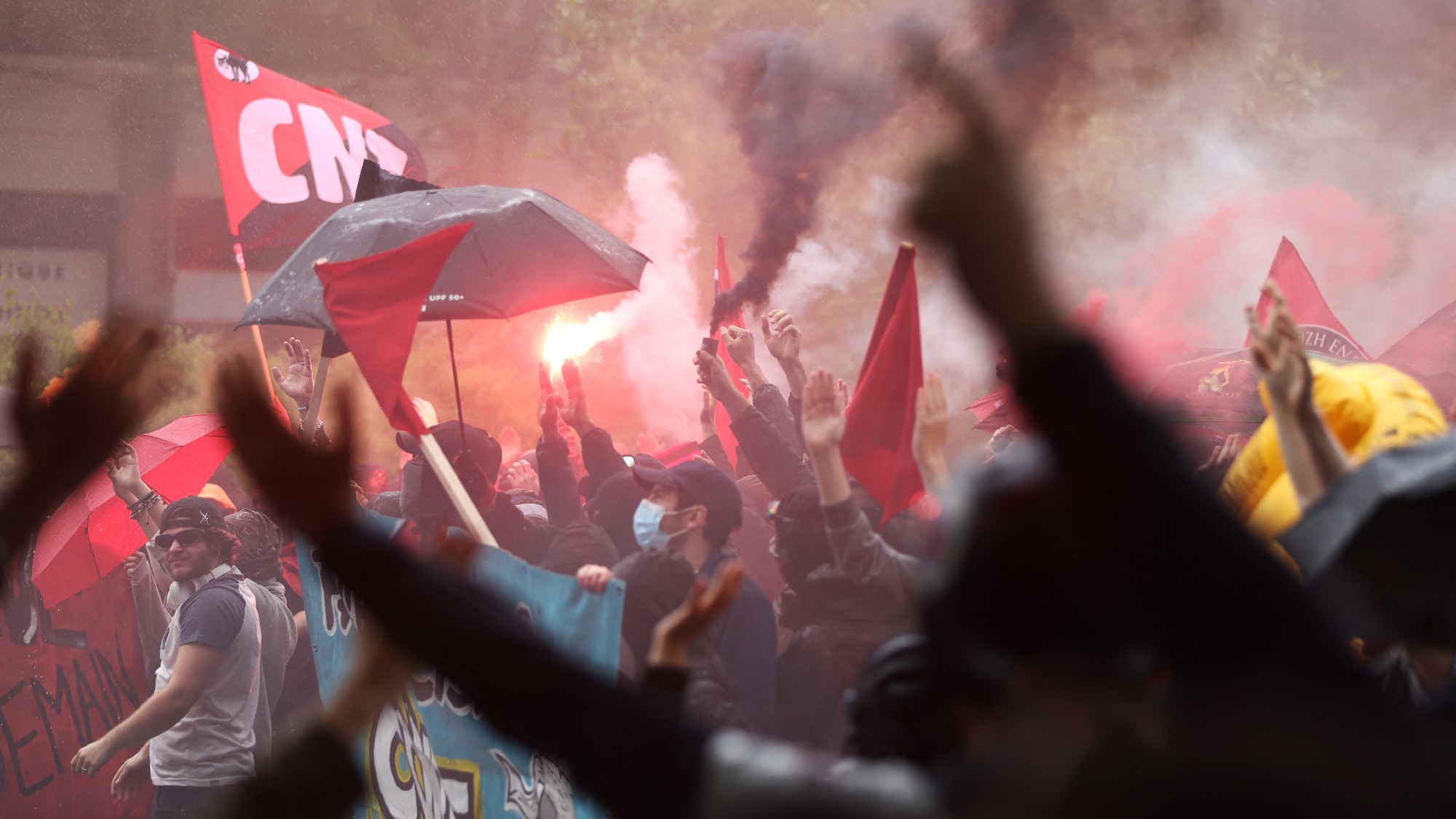Who will win France's election of extremes?
Voters face a stark choice between far-right party and left-wing alliance as centrists lose ground

A free daily email with the biggest news stories of the day – and the best features from TheWeek.com
You are now subscribed
Your newsletter sign-up was successful
Centrists are "at risk of being squeezed out of the vast majority of second-round run-off places" in France's upcoming parliamentary election.
Recent polls suggest the far-right National Rally and left-wing New Popular Front (NPF) are on course to take a higher vote share than President Emmanuel Macron's centrist alliance in the first round of voting on 30 June, said the Financial Times. Candidates need the backing of at least 12.5% of registered voters in their constituency to advance to the second and final round on 7 July, which means that in many run-off races voters will face a stark choice between right and left.
On the right stands National Rally, led by the charismatic 28-year-old Jordan Bardella. The party has pulled off an impressive rebranding in recent years, distancing itself from a history of openly xenophobic and antisemitic rhetoric to ride the wave of right-wing populism sweeping across Europe.
The Week
Escape your echo chamber. Get the facts behind the news, plus analysis from multiple perspectives.

Sign up for The Week's Free Newsletters
From our morning news briefing to a weekly Good News Newsletter, get the best of The Week delivered directly to your inbox.
From our morning news briefing to a weekly Good News Newsletter, get the best of The Week delivered directly to your inbox.
On the left is NPF, a hastily assembled alliance of France's left-wing parties formed with the explicit mission of keeping National Rally out of power. Its name is a nod to the antifascist alliance that successfully contested the 1936 election.
What did the commentators say?
Under the leadership of Marine Le Pen and now her successor Bardella, National Rally has made significant headway in detoxifying its brand and fine-tuning a populist platform that targets widespread discontent with mainstream parties. However, for many voters, "a modicum of civility has not whitewashed the party’s extreme policies", said Lee Hockstader in The Washington Post.
Female voters could be particularly crucial. Since 2019, National Rally has seen a "12 percentage point increase from women voters", who are now more likely than men to vote for the party – a "striking" reversal of usual voting patterns for far-right parties, said Politico.
On the left, the NPF alliance includes "woo-woo greens" and "traditional opportunistic socialists", but the most powerful faction are the "ultra-leftists" headed by "tantrum-prone Gaza-obsessed Trotskyist" Jean-Luc Mélenchon, said Jonathan Miller in The Spectator. This uneasy alliance has produced a programme of 150 proposals, which are "in totality and individually insane" – from price freezes on essential goods and services to lowering the retirement age to 60.
A free daily email with the biggest news stories of the day – and the best features from TheWeek.com
The pre-war Popular Front, from whom the NPF takes its name, "ended in complete failure and with the occupation of France shortly afterwards". While this time the outcome will not be so disastrous, the most likely scenario remains "a hopelessly divided Assembly".
Macron has justified calling a snap election by suggesting his hand was forced by the extreme factions who "sowed confusion in the Assemblée and polluted public debate", said Solenn de Royer in Le Monde.
The president's gamble was that he would appear the "only reassuring recourse" amid this tumultuous political landscape, yet the reaction to the announcement suggests that Macron instead "comes across as the one who created disorder".
What next?
Recent polls put the NPF at around 28% of the vote, with National Rally on 33%, but "the final outcome in terms of actual seat numbers in the national assembly is hard to judge". said The Guardian. If Macron's centrist candidates fare poorly in the first round, everything depends on where those moderate voters choose to turn in the second round – they could go leftwards, rightwards, or simply stay at home.
Whether France goes left or right, the real casualty of the election is the broader notion that the political centre represents a stabilising influence – a shift that can only further empower the nation's political extremists. On a visit to the island of Sein off the coast of Brittany earlier this week, Macron was intercepted by a voter who doubtless spoke for many when she asked: "Mr President, how can you have put us in this situation? How can you have put us in this chaos?"
Rebecca Messina is the deputy editor of The Week's UK digital team. She first joined The Week in 2015 as an editorial assistant, later becoming a staff writer and then deputy news editor, and was also a founding panellist on "The Week Unwrapped" podcast. In 2019, she became digital editor on lifestyle magazines in Bristol, in which role she oversaw the launch of interiors website YourHomeStyle.uk, before returning to The Week in 2024.